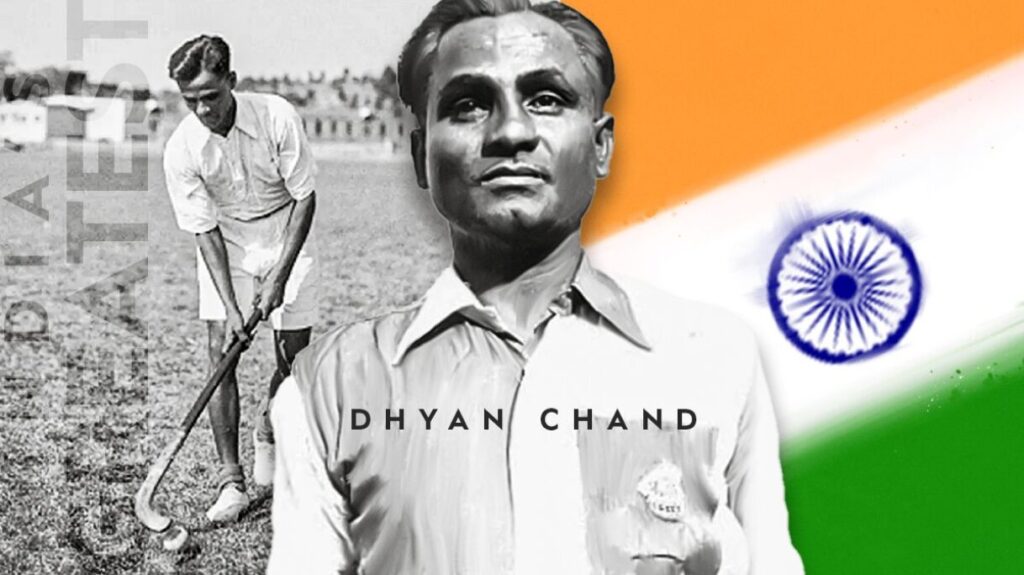Major Dhyan Chand was an Indian field hockey player who was born on August 29, 1905 and died on December 3, 1979. He is widely considered to be one of the greatest field hockey players ever. He was known for his incredible ball control and ability to score goals. Dhyan Chand also won three Olympic gold medals in 1928, 1932, and 1936, when India dominated field hockey. Beyond these victories, India won the field hockey event in seven of the eight Olympics from 1928 to 1964 under his influence.
Chand played international hockey from 1926 to 1949. According to his autobiography, he scored 570 goals in 185 matches and more than 1000 goals throughout his domestic and international career. The BBC referred to Chand as the “hockey’s equivalent of Muhammad Ali.” The Padma Bhushan, India’s third highest civilian honor, was given to Chand in 1956.

Honors of Major Dhyan Chand
The Major Dhyan Chand Khel Ratna Award is named after him to honor the Government of India’s (GOI) contribution to Indian sports. The Dhyan Chand award, a lifetime achievement award named after Dhyanchand, is given annually to India’s best performer at international level championships by the sports ministry.
Early Life
Chand was born into a Rajput family on August 29, 1905, in Allahabad. He was the son of Sharadha Singh and Sameshwar Singh and was the older brother of another hockey player, Roop Singh. Dhyan Chand’s father played hockey for the British Indian Army while he was enlisted. Roop Singh and Mool Singh were the names of Dhyan Chand’s two brothers. The family had to move to different cities as a result of his father’s numerous army transfers, and Chand had to drop out of school after only six years. In the end, the family made their home in Jhansi, Uttar Pradesh, India.
Final year
Post-independence, Chand continued to hold his emergency commission with the service number IEC 3526 in the Indian Army, but he did not appear to be given a regular commission[37]. In 1951, he was honored at India’s National Stadium with the inaugural Dhyan Chand Tournament, which he attended to the admiration of the spectators.
Chand retired from the Indian Army on August 29, 1956, as a lieutenant (acting captain). The following year, the Indian government honored him with India’s third highest civilian honor, the Padma Bhushan.[38] He taught at coaching camps in Mount Abu, Rajasthan, after retiring.He later accepted the Chief Hockey Coach position at the National Institute of Sports, Patiala, which he held for a number of years.In his final days, Chand resided in Jhansi, Uttar Pradesh, India.

